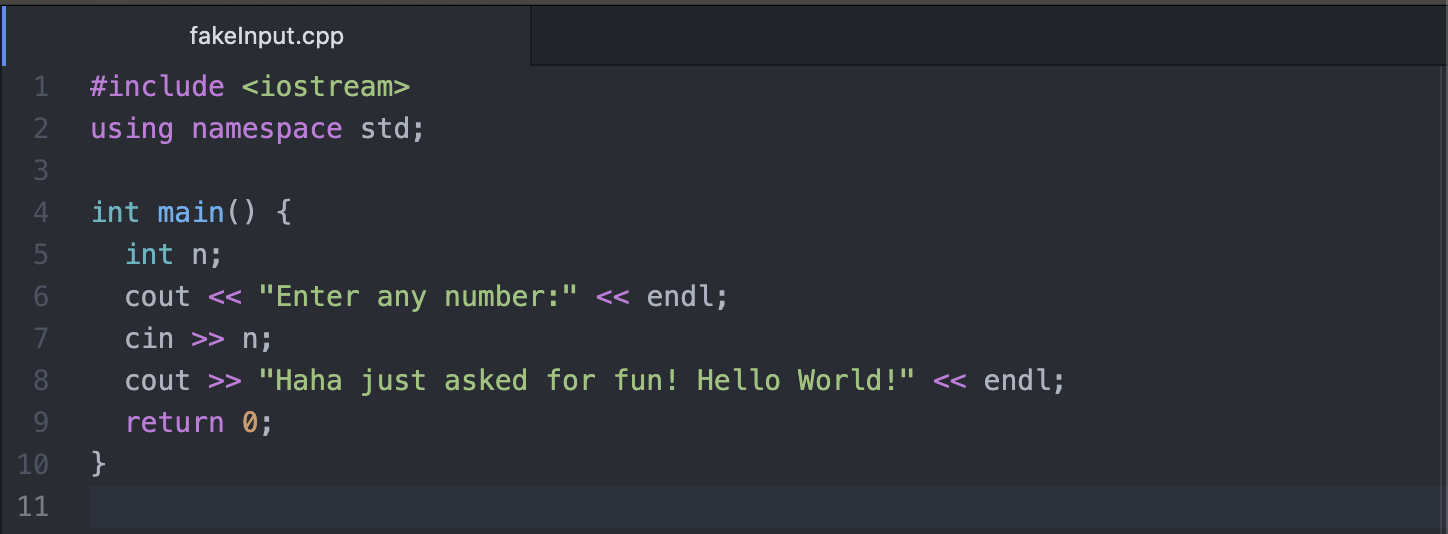[Python] #1 Python Basics
This is a self note while taking the online course from:
LinkedIn Learning: Learning Python by Joe Marini
LinkedIn Learning: Python Essential Training by Bill Weinman
1. Variables
f = 1234 # global variable
def someFunction():
f="def" # local variable
print(f)
someFunction()
print(f)
Result:
def
1234
2. Functions
- Basic function
def basic_func():
print("This is basic function")
- Function with arguments
def argument_func(arg1, arg2):
print("This function takes", arg1, "and", arg2)
- Function that returns a value
def cube(x):
return x*x*x
- Function with default values for an argument
def power(num, a=1): # a has a default value 1
result = 1
for i in range(a):
result = result * num
return result
- Function with variable number of arguments
def multi_add(*args):
result = 0
for x in args:
result = result + x
return result
3. Conditional
- can assign values with conditional statements
x = 10
y = 11
st = "x is less than y" if (x < y) else "x is greater than or the same as y"
print(st)
Result:
x is less than y
- is, in kewords
# A is B
a = 1
b = 1
if a is b:
print('a is b')
else:
print('a is not b')
# a is in A
A = [1,2,3,4]
if 1 in A:
print('1 is in A')
else:
print('1 is not in A')
Result:
a is b
1 is in A
4. Loop
- enumerate() function for each index and value in a collection
days = ['Mon', 'Tue', 'Wed', 'Thu', 'Fri', 'Sat', 'Sun']
for i, d in enumerate(days):
print(i, d)
Result:
0 Mon
1 Tue
2 Wed
3 Thu
4 Fri
5 Sat
6 Sun
5. Numeric
- float type –> sacrificing accuracty for precision
- DO NOT USE FLOAT FOR ACCURACY ex) Money
- Numeric types (int, float, decimal) are immutable!
- Problem with calculating float numbers
x = .1 + .1 + .1 - .3 # in a real world, this should be zero
print('x is {}'.format(x)) # not actually zero (almost zero)
print(type(x))
x is 5.551115123125783e-17
<class 'float'>
- Use Decimal module for accurate calculation
from decimal import *
# use modules for accuracy
a = Decimal('.10')
b = Decimal('.30')
y = a + a + a - b
print('y is {}'.format(y))
print(type(y))
y is 0.00
<class 'decimal.Decimal'>
6. Sequence Type
- List
x = [1, 2, 3, 4] # list is created with [] brackets
x[0] = 0 # list is mutable
for i in x:
print("i is {}".format(i))
print("list x is {}".format(x))
- Tuple
y = (1, 2, 3, 4) # tuple is created with () parentheses
for j in y:
print("j is {}".format(j))
print("tuple y is {}".format(y))
y[0] = 0 # this line is an error -> tuple is immutable
- range()
z = range(5) # range function creates a sequence from 0 to n-1
for k in z:
print("k is {}".format(k))
print("range(5, 30, 5) is {}".format(range(5, 30, 5)))
z[0] = 0 # this line is also an error -> range sequence is immutable
- Accessing specific range of sequence
SSN = "12121515"
print("first four digit: " + SSN[:4])
print("last four digit: " + SSN[-4:])
print("except last two digit: " + SSN[:-2])
(Result)
first four digit: 1212
last four digit: 1515
except last two digit: 121215
- Dictionary
# dictionary: searchable sequence with key value pairs
w = {'one': 1, 'two': 2, 'three': 3, 'four': 4}
# prints only keys
for l in w:
print('l is {}'.format(l))
# prints out tuple of key and value
for k, v in w.items():
print('k: {}, v: {}'.format(k, v))
# dictionary is mutable
w['one'] = 101
print('dictionary is mutable:')
print('k: one, v: {}'.format(w['one']))
(Result)
l is one
l is two
l is three
l is four
k: one, v: 1
k: two, v: 2
k: three, v: 3
k: four, v: 4
dictionary is mutable:
k: one, v: 101
7. Object
class Dog:
sound = "Woof-Woof"
walking = "Walks like a dog"
# self = reference keyword for object
def bark(self):
print(self.sound)
def walk(self):
print(self.walking)
def main():
moly = Dog()
moly.bark()
moly.walk()
if __name__ == "__main__":
main()
(Result)
Woof-Woof
Walks like a dog

